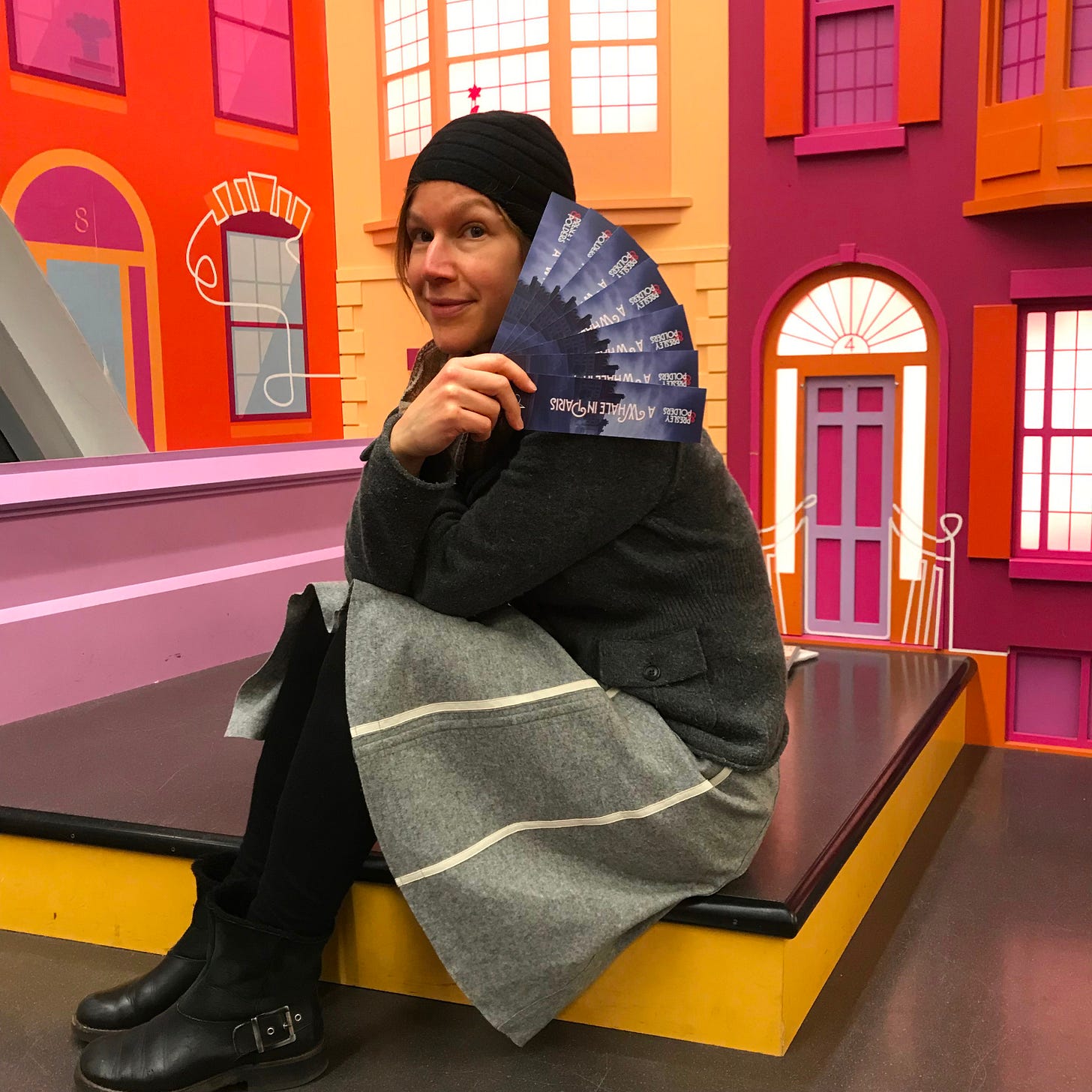🖇️ The Writer and Her Time
On starting early, procrastination, daring to fail, and stubbornness
Youth
The Writer begins when she’s young. She doesn’t want to waste time. Reading is wonderful but writing feels better. After she finishes her first book, she shows it to her mother. Very nice, her mother says as she underlines all the misspellings. The Writer is disappointed with herself. Even her main rabbit’s name, Hopper, misses one of its Ps.
In retrospect, one might say the Writer began too young. She wasted a lot of time.
High School
The Writer makes another effort in high school. She submits an article to the school paper and sees her words in print. Magic! Power! With a handful of friends, she publishes a magazine in which she writes a series of fictions. There are ten copies of each edition. She also writes a short story that she’s asked to read aloud in class. But each small victory is followed by excessive self-doubt: The flaws in her work call out to her. The Writer’s ability to critique herself grows so rapidly that finishing a piece to her satisfaction becomes impossible. Each time she approaches the end of a story, the Writer has become smarter and now looks down on the girl who began the tale.
In retrospect, one might say the Writer would have been better off waiting for her mind to mature. She wasted a lot of time.
Early Twenties
At university, the Writer writes serious papers for her classes. She has no time for frivolous stories, or so she tells herself. At night, however, she spends hours writing in her diary. Men accuse her of loving that diary more than she loves them, and she has no defense—guilty as charged. Poems and prose pieces find their way into her diary, yet they never find their way out. The Writer is not ready, or so she tells herself.
In retrospect, one might say she wasted a lot of time on procrastination.
Late Twenties
The Writer has written her debut novel. Hurray! Critiques are good. National television puts her face on the screen. For a while, the Writer seems to have found her place in time. She writes another novel and another and another. For each novel there are eager readers, but not so many, or not enough perhaps—who is to say? Well, her bank account is to say and the American Husband who has sponsored her author lifestyle thus far. He’s neither jealous of her diaries nor of her books; he just wants results. Although her first language—Dutch— is a mystery to him and he hasn’t read a single word she published, the Husband believes in the Writer. The problem, he says, is your language. There aren’t enough people reading your mother tongue.
I fear, he says, that you’re wasting your time.
Late Thirties
The Writer contemplates writing in English. It’s true that she’s not sworn to her first language. Dutch literature will survive without her. It’s also true that the majority of her conversations take place in English or French—the Writer and her Husband live in Paris. She considers the books she reads, the dreams she has, and the shopping lists she scribbles. Most of it is in English. Still, she finds it arrogant to write a book in a language not her own. Or more honestly: Making a fool out of herself scares her more than death. The endless mistakes she will make!
Won’t it be a waste of time?
Early Forties
There’s an interlude in which the Writer writes in English and despairs. Nabokov could do it, the Husband says. He means to encourage her, unaware that his words have the opposite effect. Nabokov was a genius—who is she? Time passes. Despair remains. Not wanting to waste more time, she persists. She’s nothing if not stubborn. Finally, she writes a prose piece in English about a Writer and her Time that pleases her somewhat. Magic! Power!
She’s ready to show it to the world.

Now: Woman of the Hour
The text above was one of the first pieces I ever wrote in English.
The now defunct literary magazine Fiction Southeast published it about seven years ago with a slightly different ending. I’ve written many stories and essays since, and this summer Vine Leaves Press will publish my debut collection of flash fiction in English: Woman of the Hour: Fifty Tales of Longing and Rebellion.
Several very talented authors were kind enough to read my collection in advance and share their thoughts. Here’s what one of them wrote:
I simply devoured each stunning piece. Part travelogue—journeying through history, place, and the complexities of the female experience, revealing sensual exploration, seduction, exploitation. Part poetry—blending food, nature, and metamorphoses both animal and human. Claire Polders’ flash collection is an exquisite celebration of the whole, the real self, and a call to action for the girl, the woman, and the crone. With quiet intensity and intellectual depth, each flash unveils vivid portraiture of what it means to be a fully alive, thinking, and yearning being.
—Jolene McIlwain author of NPR-Book-of-the-Year Sidle Creek.
You can pre-order Woman of the Hour now in print from the publisher.
An e-book version is also available from Bookshop.org, Barnes & Noble, and that other big store.
For more blurbs and information about the book, please visit my website. (Yes, it’s up and running again!)
Related Posts
If you enjoyed this post, you might also be interested in reading:
Time to Say Goodbye
I’ve been busy rewriting my novel set in the Netherlands and Indonesia, and have hardly paid attention to my physical presence in Mexico. Today, I was surprised to hear Spanish on the street and get a whiff of roasted corn from the freshly made tortillas.
I started this newsletter to connect my writing more to my life, but as long as my ambition includes novels, this may be forever out of reach.
All my best,
Claire
P.S. Do you have this, too, this feeling of disconnect when you write, as though you’re living in two separate worlds?









Wonderfully evocative and really captures what your journey has been like. And Brent also wrote and published a newsletter/newspaper back in elementary school!
Great trajectory! Literally finding your voice. 🙂